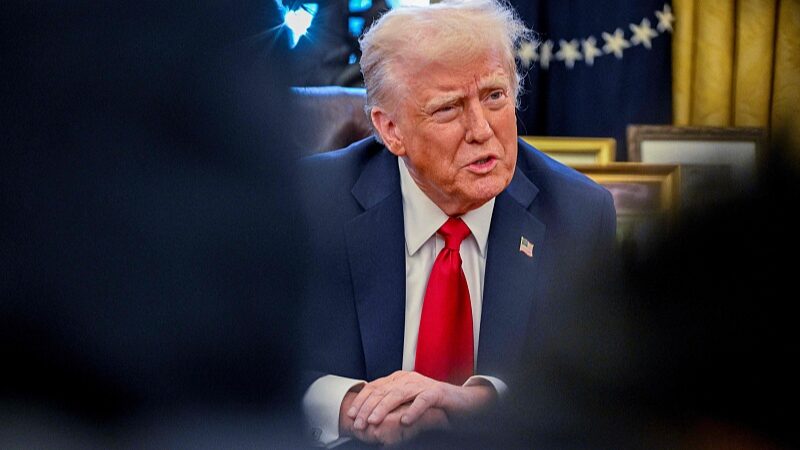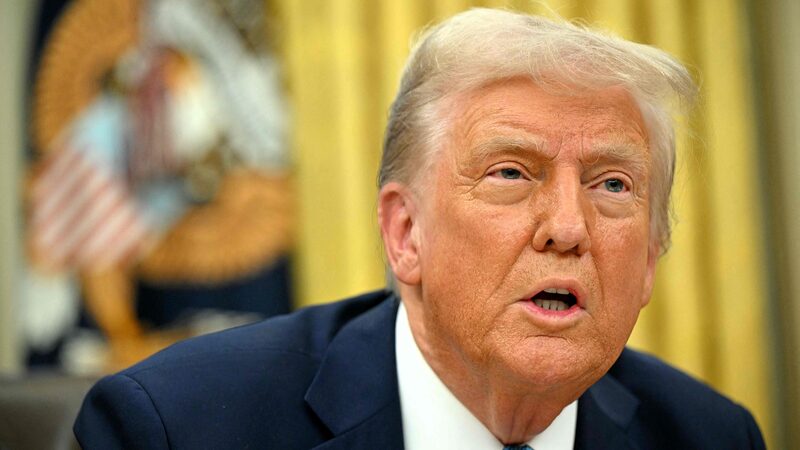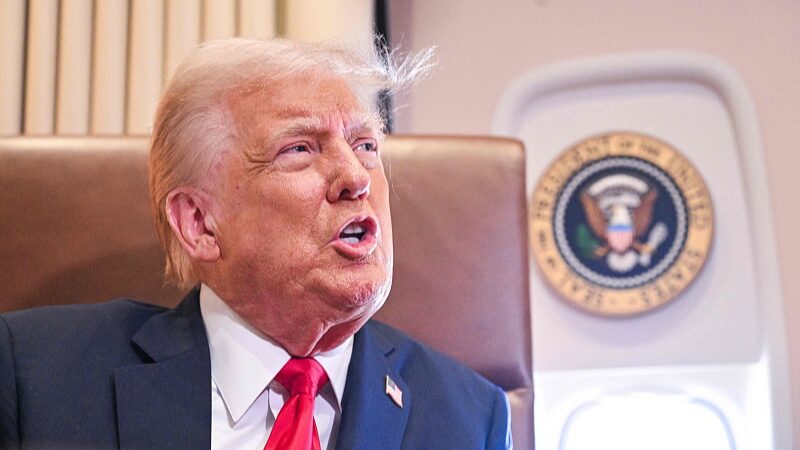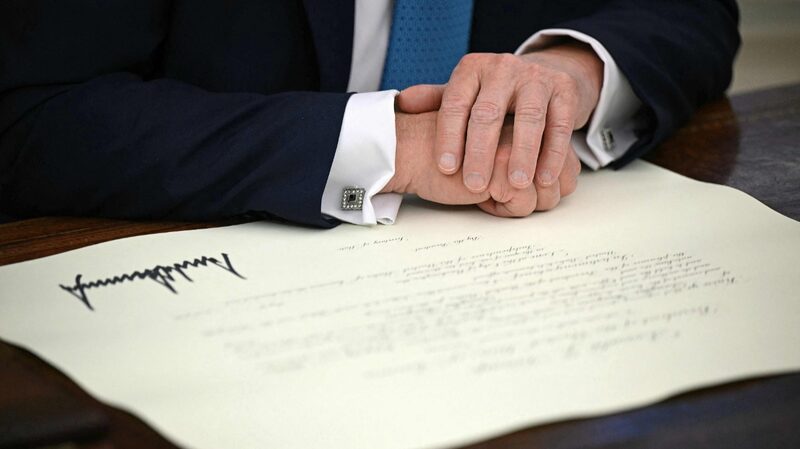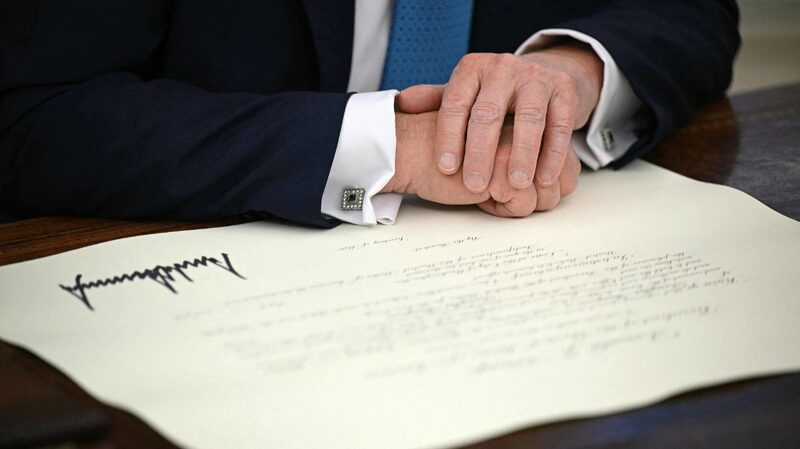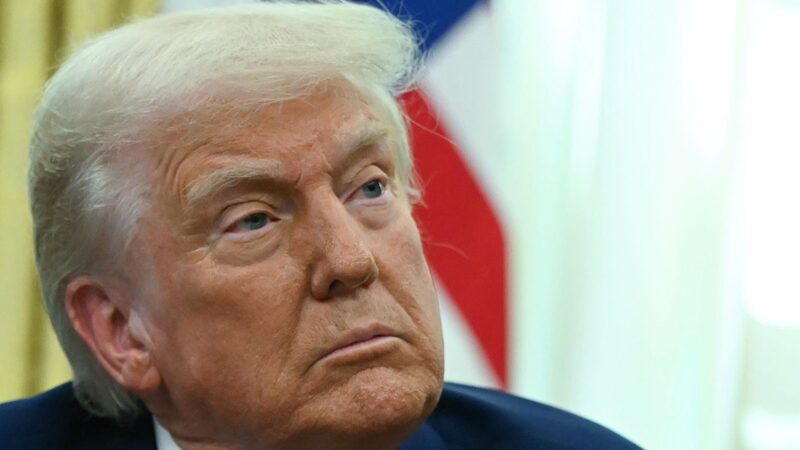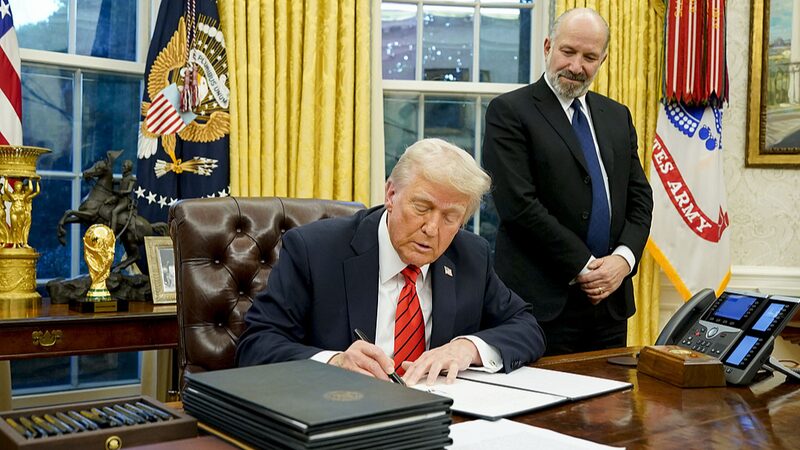The U.S. stock market plunged on Friday amid escalating concerns after President Donald Trump confirmed he would proceed with his tariff threats against major trading partners Canada and Mexico. The announcement has raised alarms about potential retaliation, inflationary pressures, and disruptions to global trade.
White House Press Secretary Karoline Leavitt announced that the U.S. will implement 25% tariffs on imports from Canada and Mexico starting February 1. Speaking to reporters, President Trump stated that sweeping duties will be imposed on chips, oil and gas, steel, and aluminum. He also mentioned considering tariffs on oil and gas imports beginning February 18.
Trump noted that crude oil imports from Canada might be taxed at a lower rate of 10%, but broader tariffs on oil and natural gas could be introduced in mid-February. These remarks led to an immediate increase in oil prices.
Furthermore, Trump indicated he would \"absolutely\" impose tariffs on imports from the European Union, though he did not provide a specific timeline, adding to global economic uncertainties.
Retaliation Set to Follow
Canada and Mexico have responded swiftly to the tariff announcements. Canadian Prime Minister Justin Trudeau declared that Canada is prepared to deliver a \"purposeful, forceful but reasonable, immediate\" response if tariffs are imposed on Canadian imports.
As the largest supplier of U.S. energy imports—including crude oil, natural gas, and electricity—Canada's share of U.S. crude oil imports increased from 33% in 2013 to 60% in 2023, according to a U.S. Congressional Research Service report. Potential Canadian retaliation could significantly impact U.S. energy markets.
Melanie Joly, Canada's Foreign Affairs Minister, indicated that Ottawa is not ruling out any countermeasures. \"Everything is on the table,\" she stated, suggesting that Canada has detailed plans for immediate tariff retaliation, potentially targeting up to C$150 billion worth of U.S. imports.
Mexico is also preparing countermeasures. President Claudia Sheinbaum noted that Mexico would \"wait with a cool head\" for Trump's tariff decision but emphasized that they have contingency plans—\"Plan A, Plan B, Plan C\"—depending on the U.S. actions.
Sheinbaum previously highlighted that Trump's tariffs could cost 400,000 U.S. jobs and raise prices for American consumers. Mexico's primary exports to the U.S. include computers, cars, and motor vehicle parts, while it imports refined petroleum, motor vehicle parts, and petroleum gas from the U.S.
'Tax America First'
Economists warn that the sweeping import taxes proposed by the Trump administration, along with anticipated retaliation, could disrupt economic activity worldwide. In the latest World Economic Outlook report, the International Monetary Fund's chief economist, Pierre-Olivier Gourinchas, wrote that Trump's policies are likely to push inflation higher in the near term.
Business leaders and economists caution that tariffs would increase the prices of imports such as aluminum and lumber from Canada, fruits, vegetables, beer, and electronics from Mexico, and motor vehicles from both countries. \"President Trump's tariffs will tax America first,\" said Matthew Holmes, public policy chief at the Canadian Chamber of Commerce. \"From higher costs at the pumps, grocery stores, and online checkouts, tariffs cascade through the economy and end up hurting consumers and businesses on both sides of the border.\"
Liu Ying, a researcher at the Chongyang Institute for Financial Studies at Renmin University of China, stated that higher tariffs will increase import costs for the U.S., potentially pushing inflation up to 3%, which could alter the Federal Reserve's interest rate policies. \"If the tariffs are implemented, many countries may shift their trade to regions with lower tariff barriers, leading to a realignment of global trade patterns,\" Liu told China Media Group. \"Consequently, the tariffs could not only drive up domestic prices in the U.S. and hinder economic growth but also cause volatility in global financial markets and disrupt global supply chains.\"
With tariff deadlines approaching, the global economic community watches closely, bracing for potential shifts in trade dynamics and economic policies.
(With input from agencies)
Reference(s):
Retaliation, inflation, disruption: What to take from Trump tariffs?
cgtn.com
